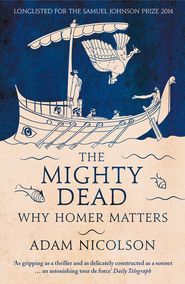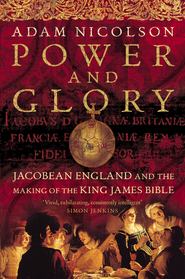По всем вопросам обращайтесь на: info@litportal.ru
(©) 2003-2024.
✖
The Gentry: Stories of the English
Автор
Год написания книги
2019
Настройки чтения
Размер шрифта
Высота строк
Поля
A visitor called on him that morning, a man called Edward Tennant. He was the servant of one of the Thynnes’ Wiltshire neighbours, Sir James Mervyn. Thomas would have known that all Mervyns hated all Thynnes. But Tennant brought a letter from John Mervyn, the forty-year-old nephew of Sir James and the great exception to that enmity. Unlike every other Mervyn in England, John Mervyn could be trusted. He was an old friend of Thomas’s own father, John. But even here, at the very beginning of the story, there is treachery and deceit, because Tennant’s mission, under John Mervyn’s instructions, was to entrap young Thynne into the greatest mistake of his life.
Over the previous twenty years the two families had been conducting a vicious and at times murderous feud, a power struggle to control the county of Wiltshire in which they were both rich and powerful landowners.
There was nothing aberrational about this: all over Elizabethan England, particularly in those counties where there was no single great, controlling aristocratic or courtly family, the gentry battled for reputation, influence and office. Bribery, deceit, slander, threats, street fights, woundings and murders: all were part of the struggle between leading English families in the sixteenth century. Friends were appointed to juries and to the magistrates’ bench; enemies had their reputations destroyed by whispers at court and in the local gentry community. Marriage alliances were made in the old way between families whose interests seemed aligned; provocations, insults and violence were thrown at rivals. The world of the Montagues and Capulets would have been entirely familiar to its audience.
The hostility between the Thynnes and the Mervyns had first come to a head in the 1570s.
Each family was almost but not quite alike in dignity. Both were new gentry, on the up, emerging in the early sixteenth century from medieval obscurity into the vicious Tudor world of opportunity and riches. But they were far from satisfied and by the 1570s both still wanted more in the way of land, money and power. The Thynnes were originally modest Shropshire people.
The founder of their family greatness, John Thynne, born in about 1513, had become steward to Edward Seymour, the great servant of Henry VIII. Seymour had risen as high as a commoner ever could, eventually becoming Duke of Somerset and effective ruler of England as the Lord Protector of Edward VI. John Thynne, a man of purpose, culture and discernment, a loyal servant, had risen on Seymour’s tails, acquiring large amounts of land in Wiltshire, including the old Priory at Longleat, where between 1540 and 1580 he built and then rebuilt the most perfect Renaissance house in England.
He was a deeply cultivated man, urging his sons to learn Greek, sending from London remedies for his children’s afflictions in cold weather.
Much of his expensive life was paid for with the money that came flowing into the Thynne coffers from his marriage to Christian Gresham, the daughter and heiress of Sir Richard, one of the wealthiest men in England, an import–export merchant in the City, dealing in grain and fine textiles, supplying Henry VIII with the tapestries, satins and velvets that embellished his palaces.
Thynne had made use of the two key sources of modern gentry wellbeing – office and trade – and was busy pouring them into a provincial power base.
The story of the Mervyns – or Marvins, as their name was also spelled – had begun slightly earlier and a little more murkily.
In the 1470s, in ways that are not entirely clear, they somehow acquired the manor of Fonthill Gifford, the far side of a beautiful high chalk ridge from Longleat. By the 1560s, successive Mervyns had built up their landholdings enough to put them among the leading Wiltshire gentry. They lived in style: a stone house with the usual ranks of big glazed windows on three floors, surrounded by a large park containing a newly enlarged lake, with a turreted gatehouse, woods, a heronry, a hop yard, a dairy and pasture for herds of sheep and cattle. There was a vineyard here in 1633, which may well have been planted a century before. It sounds like a gentleman’s paradise, but as so often in these stories, the physical description, the view you would get if you turned up at sixteenth-century Fonthill Gifford as a tourist, belied the realities of tension and struggle behind it.
They were approaching from slightly different places in the gentry universe: both knightly families but the Mervyns three or four generations deep as Wiltshire gentlemen; the Thynnes richer, more explicitly Protestant, less provincial, sharper, riskier, with the currents of court politics, noble service and City money all running through them. Each family had something to offer the other. But one further status-colouring element may have been in play: in 1549 and again in 1551, as the rivalries surrounding the Tudor crown reached their mid-century crisis, Edward Seymour, Duke of Somerset, was arrested and sent to the Tower.
His loyal servant John Thynne was sent there with him. The Privy Council’s warrant to conduct Thynne to the Tower was addressed to ‘Mr Mervyn, sheriff of Wiltshire’.
It was a moment of humiliation: Thynne, the parvenu steward, being conducted to prison by Mervyn, the ancient county gentleman. Status, to say the least, was nuanced here.
By the 1570s, the head of the Mervyn family was Sir James, a wily practitioner of gentry arts, and in 1574, the memory of the arrest a quarter of a century earlier was set aside. Negotiations were opened between him and Sir John Thynne for a marriage between Mervyn’s daughter Lucy and Thynne’s son, also called John. Lucy Mervyn and young John Thynne were betrothed and it seems as if John fell in love with the girl.
Family agents discussed terms and, as usual, Sir James Mervyn offered his daughter along with a set of Wiltshire manors as her dowry, land that by convention would then descend to the heirs of the marriage. But Sir James was cheating: the manors he was offering were entailed, designated by law to be heritable only by male members of the Mervyn family. Sir John Thynne was in danger of making a contract with his neighbour (Fonthill is about fourteen miles from Longleat) which would fail to enrich his own family at all. His son’s hand in marriage, the most valuable property a member of the gentry possessed, would have been sold for a pup.
Enraged at this insult, perhaps at the assumption of his gullibility, perhaps at the lack of respect it implied, Sir John broke off the negotiations.
But love is a smoke raised with the fume of sighs and young John was so in love with Lucy that he would not give her up. Only the threat of disinheritance from his father persuaded him that Longleat was preferable to Lucy and instead he was married to Joan Hayward, the daughter of another wonderfully rich City merchant and Lord Mayor of London.
It was no brutal marrying of money to power. A letter to Sir John survives from his agent and fixer Richard Young, written halfway through the negotiations. It was important to all parties that the bride and groom to be should approve of each other. Richard Young had agreed with Joan’s father that ‘Unless the two parties could the one so like of the other and they themeselves to be as joyful as the father, there should be no displeasure but to part in great friendship on both sides.’
Young asked Joan, who was not quite seventeen, what she thought of John.
She said she would not nor could say nothing, for she had not spoken with him and at our speaking, she said, it is possible he shall not like me, and in the other side I may say the same of him, but I do put my trust in God and in my good father that God will put into my father’s heart to choose me such a one as God will direct my heart not to dislike.
Lucy Mervyn was consigned to an impoverished military lord, the 11th Baron Audley, an ally of the Mervyns in their great feud, his immensely ancient Wiltshire family larded with a history of lunacy and incompetence. One of their daughters, Eleanour, would eventually claim she was the Bishop of Lichfield, sprinkling tar, which she called holy water, on the hangings in the cathedral there, after which she was committed to Bedlam.
Their son and heir was beheaded for sodomizing his servants and holding down his wife while their servants raped her.
The benefits of an Audley marriage were not entirely unequivocal.
Here is one way of understanding the Thynne–Mervyn difficulty: relatively small-time gentry family (the Mervyns) aim to hitch their star to high-rolling, ambitious professionals (the Thynnes) but imagine that their higher county status can allow them to cheat. It doesn’t and so each party in the encounter withdraws to a safer place – the Mervyns to old hopeless aristocracy, for status enhancement, the Thynnes to City money, for further enrichment.
Thynnes allied to Mervyns would have been an entirely satisfactory marriage of money with status. As it was, the marriage of Thynnes with Haywards was money allying itself to money. Mervyns joining with Audleys was status joining with status. For each family the second marriage left them lacking something: the Mervyns wanted cash and the Thynnes wanted rooted county standing. Sir James Mervyn’s greed, and his inability to play by the rules, had wrecked the deal and he had made the wrong choice. The Thynnes had done better: alliance to money would guarantee their future.
Ever since that moment of betrayal, the Thynnes and the Mervyns had been at each other’s throats. A more general struggle for control of the Wiltshire courts and political structures lay behind it and there had been bloody street fighting between followers of the two parties at the Marlborough quarter sessions and the Salisbury Assizes in 1589, endless status struggles and mutual humiliations, sending each others’ servants to jail at successive court hearings, raids on stock, destruction of hedges, the killing of deer in parks, a self-sustaining mutual antipathy.
Teenagers do not always know their family histories but a miasma of half-remembered enmities and loyalties must have hung over the May morning encounter in Thomas Thynne’s set of rooms in Oxford. Thomas was the son and heir of the marriage between John Thynne and Joan Hayward, the London merchant’s daughter. Edward Tennant brought him a letter from John Mervyn, nephew of the hated and duplicitous Sir James.
But here there is a complexity: John Mervyn, despite the history and although he was of an older generation, was Thomas’s ‘very familiar friend’.
It is not known how the friendship had evolved or what it consisted of, but it was real enough because Thomas responded instantly to John’s invitation to ride thirty miles or so down the London road to High Wycombe, where, John Mervyn said, they would ‘make merry’.
Thynne, bored with his work – it was a Monday – and ‘desirous of some Liberty and recreacon from his booke and study’,
set off with Edward Tennant, taking about three hours to reach High Wycombe. Thomas Mosely, another Mervyn servant, met them there, with the message that they should ride on another six miles to Beaconsfield, where at the Bell Inn they would find John Mervyn waiting. There is no telling if this part of the plan was deliberate – John Thynne might have thought Wycombe easily reached from Oxford, Beaconsfield perhaps a little too far – but in retrospect, we can see the hand of Sir James Mervyn slowly and gently closing in on his intended victim.
At the Bell, Sir James himself was not there, but his nephew John was and so was Sir James’s favourite daughter, Lucy, Lady Audley, with her two daughters, Amy Touchet and the brilliantly red-haired sixteen-year-old Maria Touchet, a superbly well-educated and fiery girl, one of the Queen’s four or five maids of honour. With their mother, Maria and Amy had travelled the twenty-five miles or so from Westminster in a coach that afternoon. There were numerous other Mervyns there, and their retainers: it was to be a party.
The Mervyns ordered sweetmeats and ‘a great store of wine’.
Everyone sat and drank, toasted and talked, laughing and joking around a table. The evening ran on and at some time, as the wine flowed, and as the Mervyns intended, the young, handsome, adventurous, romantic Thomas Thynne found himself sitting next to the beautiful Maria Touchet. They had ‘frendly and familiar speache’ together.
Then, unlikely as this sounds, unless the teenagers were very drunk, as they probably were, or Maria’s mother had a supremely tight control over the unfolding of events, as she probably did, the two of them, at least according to the deposition of one Edmund Mervyn at the later court case, ‘grew into such good liking of each other as that they seemed desirous to be married presently’,
meaning, in sixteenth-century English, ‘straight away’.
Lucy Audley, according to her own testimony, then displayed the wares and
caused her said daughter to be turned about, to the end the same Mr Thyn might see that she was no way deformed, but that if he liked her outwardly she wowld assure him that for the disposicon of her minde it showld appeare to him to be much more perfecte.
Thynne liked what he saw, and imagined the higher, hidden qualities as even better. An old man called Welles, whose eyesight was failing but who was said to be an ordained minister, was then spirited into position and a Book of Common Prayer was found. The party migrated to a candlelit upper room in the inn and there Edward Tennant, the man who had inveigled Thomas Thynne that morning to leave Oxford for a party, read out the words of the service because the Reverend Welles could not see properly in the flickering candlelight. Welles repeated Tennant’s words and Thomas and Maria made the solemn vows. According to sixteenth-century law, these vows spoken voluntarily in front of a minister constituted a valid and legal marriage.
The Mervyns, in a spectacular coup, had captured the heir of the Thynnes. No dowry had been promised with Maria’s hand and so the deceitful deal which Sir James had tried to make with Thomas’s father twenty years earlier had now come good for him the next generation down. All that humiliation, Sir John Thynne’s rejection of Lucy in favour of a London merchant’s daughter, all those years of whispered contempt in the gentry houses, parks and hunting fields of Wiltshire, all had now been revenged.
A bed was made up in the inn and, as usual in Elizabethan marriages, the newly-weds went to bed together in front of the company. Edward Tennant was later clear that neither of them took their clothes off. They certainly didn’t have sex but the Mervyn witnesses were adamant that the two did ‘imbrace and kisse each other being in bed very lovingly’.
Maria gave Thomas a beautiful pair of gloves. Eventually, as dawn approached, everyone else went to bed too, happy at the triumphant outcome of the evening.
Even when the newly married Thomas Thynne woke the next morning, he was said to be ‘joyful’.
His beautiful bride, the daughter of a peer, whose godmother was the Queen, was surely the most wonderful catch. He wanted to go back with her to the court at Westminster, but the canny seriousness of the Mervyn clan intervened. Everyone who had witnessed the events of the last twelve hours was sworn to secrecy. Maria gave Thomas a needleworked waistcoat with which he was to return to Oxford.
She went back to court, from which the Mervyns had arranged no more than two days’ leave, and where the Queen was to hear nothing of the marriage. The Thynne parents were to be kept in the dark, as were any Thynne retainers.
It was a dream of Elizabethan teenage happiness. The word ‘secret’ appears forty-eight times in Orlando Furioso
and here now, for real, Romeo had at least kissed and slept in the same bed as his Juliet.
One can only imagine Thynne’s levels of anxiety that autumn when the feud between the two families turned bloody. Two allies of the Mervyns, the Danvers brothers, both distinguished and powerful soldiers, burst into a house at Corsham in Wiltshire, accompanied by seventeen or eighteen armed men, all carrying swords and pistols. Henry Long, John Thynne’s brother-in-law and Thomas’s uncle, was dining there with his fellow JPs. Between the Danvers and the Long families, there was a long-running subset of the Thynne–Mervyn feud. Charles Danvers began insulting and then cudgelling Henry Long but he was caught in a corner and injured. His brother Henry then took out his pistol and shot Long dead with a single bullet in the chest. It was murder. The Danverses fled abroad to France and renewed bitterness spread through the feuding Wiltshire families.
In this heightened and dangerous atmosphere, Thomas Thynne managed to keep his marriage secret until the following spring. In April 1595 it somehow erupted into the public world of court and gentry gossip – perhaps at the hands of the Mervyns, who would have wanted to regularize the situation – and the Thynne parents exploded in grief and rage. Thomas’s mother, Joan, was in the Thynnes’ castle at Caus in deepest Shropshire, his father, John, in their house in Cannon Row in Westminster. Both were hard at work, Joan defending their castle and Shropshire lands from another family who claimed it, John attempting at court to promote his family interests and get himself a knighthood. The kidnapping of their son and heir was one disaster too many, one that combined treachery, humiliation, disobedience and financial disaster.
Другие электронные книги автора Adam Nicolson
Sea Room




 0
0











